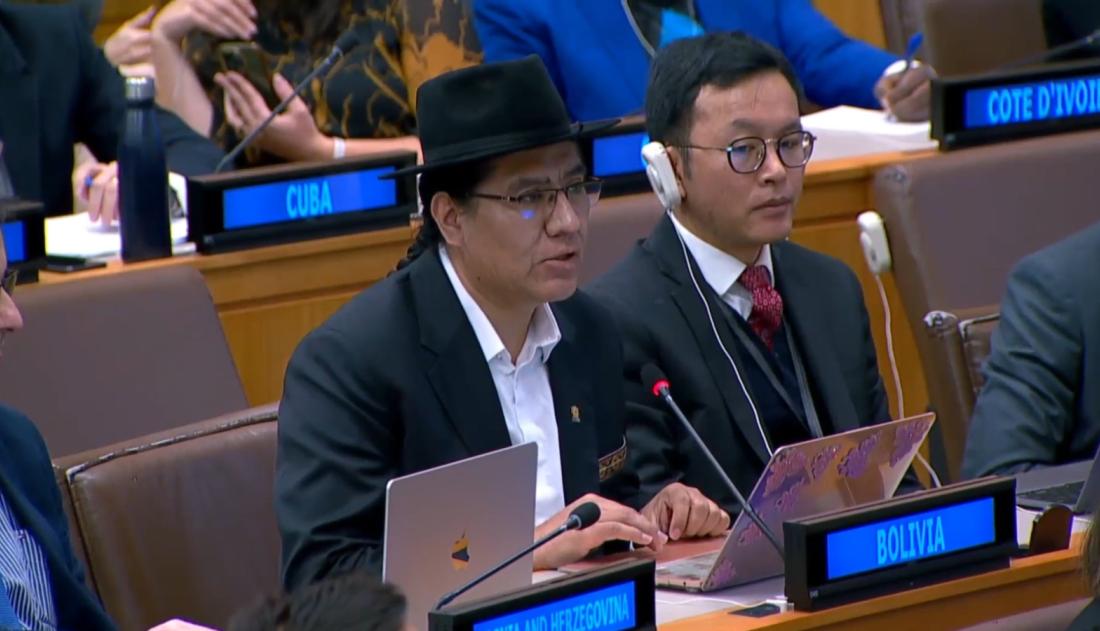
On 11 November 2024, the Social, Humanitarian, and Cultural Committee (Third Committee) of the 79th session of the General Assembly discussed and considered the draft resolution, "The Rights of Indigenous Peoples" [item 68 (a)].
The Committee took up the draft resolution “Rights of Indigenous Peoples” (A/C.3/79/L.21/Rev.1). Among other issues, the resolution:
- Recognizes that Indigenous individuals have the rights to life, physical and mental integrity, liberty, and security of person, as well as the collective right of Indigenous Peoples to live in freedom, peace, and security, as set out in the United Nations Declaration on the Rights of Indigenous Peoples. It emphasizes the importance of meaningfully engaging Indigenous Peoples in peace agreement negotiations, transitional justice processes, conflict resolution, mediation, and constructive arrangements.
- Recognizes that Indigenous Peoples, particularly Indigenous women and girls, and Indigenous persons with disabilities, are disproportionately affected by the impacts of climate change, which negatively impact the enjoyment of their rights. The resolution therefore encourages their involvement in the design and implementation of public policies related to the environment and development. It also invites the Commission on the Status of Women to consider, at a future session, the issue of gender equality and the empowerment of Indigenous women and girls as a priority theme.
- Raises awareness of the fact that many Indigenous Peoples do not speak any of the official languages of the United Nations and encourages the United Nations to consider addressing this issue.
- Requests the President of the General Assembly to convene, within existing resources, a high-level panel during the high-level week of the 82nd session of the General Assembly in 2027 to commemorate the 20th anniversary of the United Nations Declaration on the Rights of Indigenous Peoples and share perspectives and best practices on the realization of Indigenous Peoples' rights in pursuit of the Declaration’s objectives.
The main sponsors of the resolution were the Plurinational State of Bolivia and Ecuador.
The Committee approved the draft resolution A/C.3/79/L.21/Rev.1 by recorded vote (in favor: 168; against: 1; abstentions: 7).
The following States took the floor before the vote: Ecuador, Mexico, United Kingdom, Peru, Spain, Argentina, and Russia. After the vote, the following States made statements: Niger, Iran, Indonesia, Bulgaria (on behalf of Bulgaria, France, Romania and Slovakia), USA, Brazil, Malaysia, Hungary, Canada, Australia, Colombia, Egypt, Algeria, Japan, Iraq, and the Holy See.
For more information visit UN Meetings Coverage (GA/SHC/4428).
Watch the webcast of the session here.
 Welcome to the United Nations
Welcome to the United Nations


